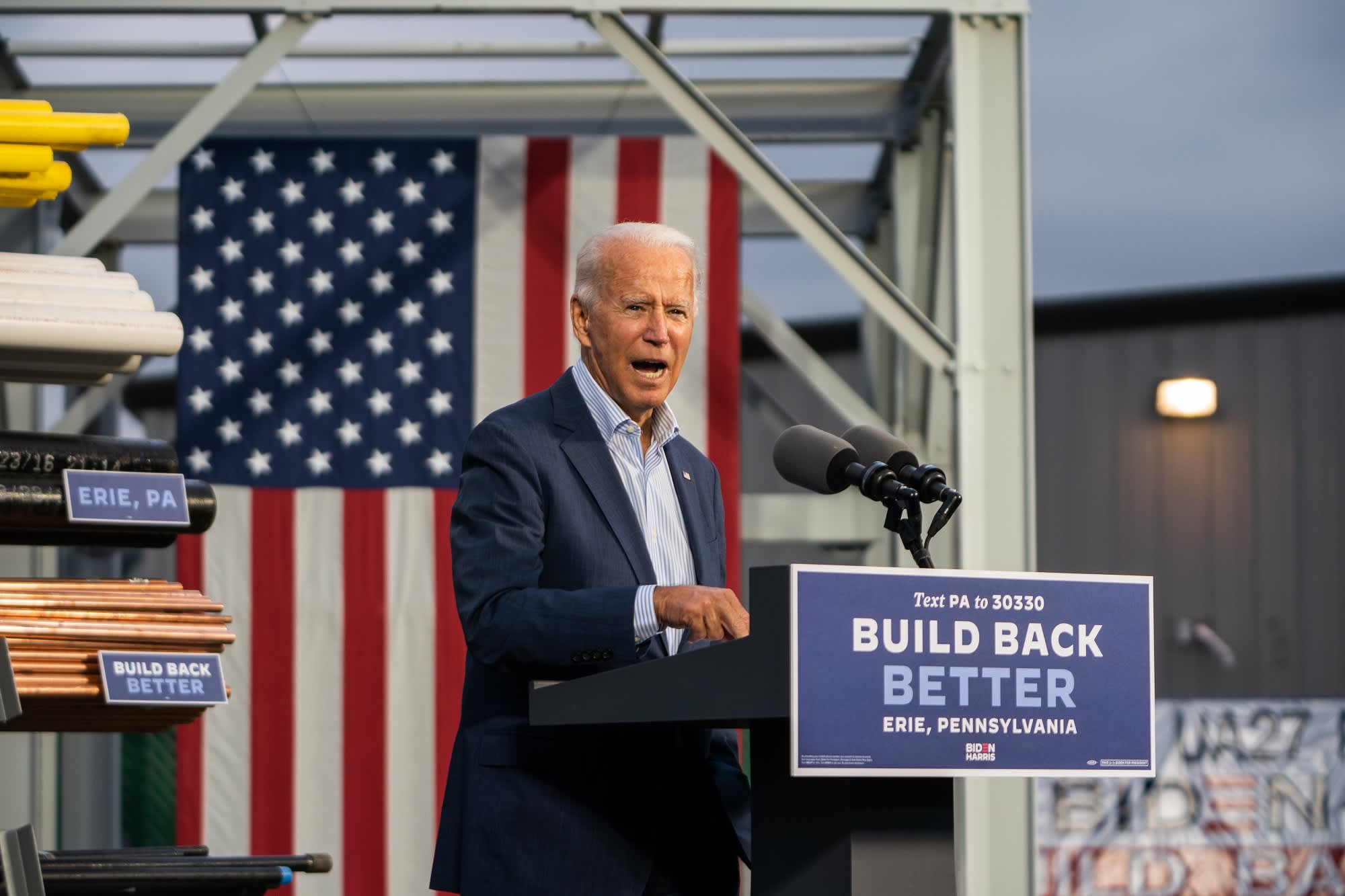
The outcome of the U.S. presidential election is still very much in play, but a victory for Democratic candidate Joe Biden would likely see the new president wanting the U.S. to rejoin the massive trade deal known as the Trans-Pacific Partnership in some new form, according to a Harvard-based China watcher.
The TPP was negotiated by the Obama administration but never approved by Congress. The pact was signed in February 2016 by 12 countries that included the U.S., Japan, Canada, Australia and Vietnam.
But President Donald Trump pulled the U.S. out of the TPP in 2017, leaving the remaining 11 countries to renegotiate and sign the Comprehensive and Progressive Agreement for Trans-Pacific Partnership or CPTPP in March 2018.
In its original form, the TPP would have put around 40% of the world economy on the side of the U.S. — compared with China's share of 18% or 20% of global GDP, said Graham Allison, Harvard University's Douglas Dillon professor of government.
"If it's simply a matter of geopolitics, the U.S. would do it in a heartbeat," he told CNBC's "Squawk Box Asia" on Wednesday.
"In terms of the domestic politics, Democrats – and especially the Democratic base — are more protectionist than the Republicans. So I think it'll be a difficult challenge, certainly would have been one that Biden will be interested in," said Allison, who was assistant secretary of defense under President Bill Clinton and special advisor to the secretary of defense under President Ronald Reagan.
Biden, who backed the TPP as Obama's vice president, has reportedly said he would renegotiate the trade deal if he's elected. He had also told think tank Council on Foreign Relations that while the TPP wasn't a perfect deal, it was a good way for countries to come together "to curb China's excesses."
Allison explained that if Biden were to win the presidential election — far from a certain prospect as votes are tallied — his administration would have to balance domestic interest and renegotiate the TPP in a way that would be analogous to its original version.
U.S.-China rivalry set to worsen
Since the U.S. withdrew from the TPP, China has doubled down on completing a rival trade deal called the Regional Comprehensive Economic Partnership or RCEP. Fifteen Asia Pacific countries are expected to sign that deal this year, and RCEP would be the world's largest trade agreement, covering around one-third of the world's population and GDP.
Negotiations for RCEP started in 2013 when the TPP talks were underway. Given China's absence from the then U.S.-led TPP, many observers see RCEP as a way for Beijing to counter American influence in Asia-Pacific.
Animosity between the U.S. and China, the world's top two economies, has grown since then, with the countries clashing over a wider variety of issues such as trade, technology and human rights.
The U.S. under Trump has taken a particularly tough stance against China, such as slapping hundreds of billions of dollars in additional tariffs on Chinese goods and making it harder for Chinese companies to do business in the U.S.
Even if Trump loses the election, U.S.-China relations are likely to worsen, said Allison. He pointed out that both Trump and Biden have made "noise" about China's rise, and that's likely to continue.
"There's a structural change occurring independent of the electioneer and independent of whoever becomes the president," he said.
That change, he explained, involves a rising power, China, displacing a ruling power, the U.S., "from its accustomed position at the top of every packing order."
"want" - Google News
November 04, 2020 at 11:40AM
https://ift.tt/34T84ev
Biden would want the U.S. to rejoin Trans-Pacific Partnership, leading China watcher says - CNBC
"want" - Google News
https://ift.tt/31yeVa2
https://ift.tt/2YsHiXz
Bagikan Berita Ini















0 Response to "Biden would want the U.S. to rejoin Trans-Pacific Partnership, leading China watcher says - CNBC"
Post a Comment